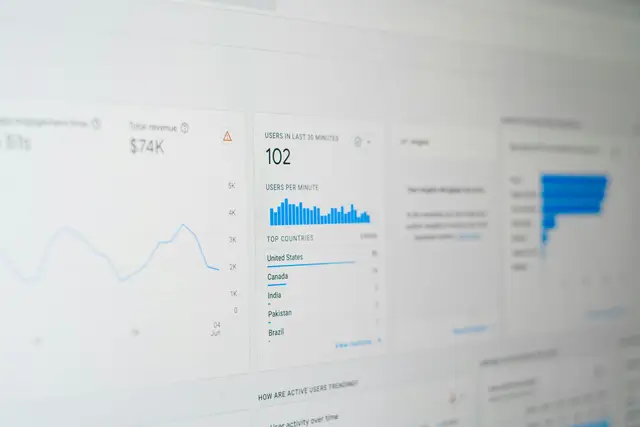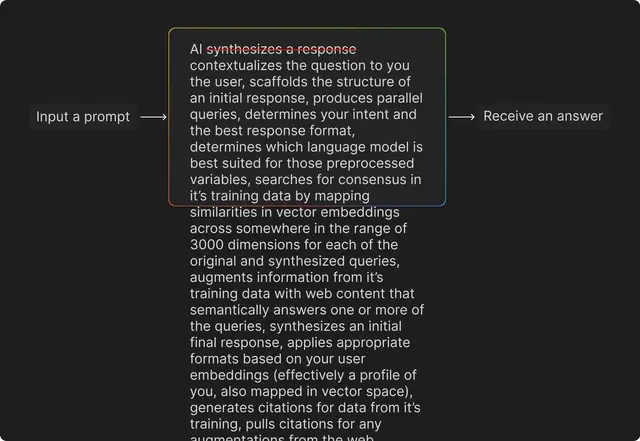Published on Sun Sep 21 2025 00:00:00 GMT+0000 (Coordinated Universal Time) by John Wheeler
SEO to-dos for small business owners
SEO foundations: things you would know if you didn’t already have 9 jobs
You’re a small business owner. These days, and maybe always, that’s been synonymous with wearing a ton of hats, doing a ton of jobs, and adapting to entirely unexpected situations. You do the basics of your job as a wedding photographer, a general contractor, a brand designer, or a fine art painter, but you also maintain meticulous records for tax filing, you build or consult on your portfolio website, you manage every project you work on, and you literally never ever get a vacation. I promise I’m not trying to add more work on top of what you already do. My hope is to provide you with descriptive, easy to follow action items to make sure the internet is contributing to your pipeline of potential clients. Let’s cover some quick key terms:
-
Keywords: the words or phrases entered in search engines to find specific information.
-
Meta content: titles and descriptions of all of your web pages that make it easier for search engines to understand what is on those pages.
-
Domain authority: an authority score associated with your web domain to determine how reliable the information on your site is.
Remember, not everything below needs to be done immediately. Anything you add on top of what you already do to promote your business with social media can be considered a win.
SEO foundations: the easy wins you can accomplish today
- Keywords matter: Ideate on the terminology you want to be associated with your business.
Pro tip: put yourself in the shoes of your potential clients. Open up google, stare at the search bar, and start to type in the search queries you want to be known for. File those away for later. Literally, write them down somewhere, because they’ll come in handy.
-
Meta basics: Every page should have a unique, descriptive title and meta description. Think “headline + short pitch.” Titles can be as simple as the heading of the page, like “Pricing” or “About”.
-
Speed + mobile: Most of your visitors are on their phone. Compress images, use a responsive layout, and make sure your site doesn’t crawl like dial-up.
To-do:
-
Jot down some keywords you want to associate with your business, slightly longer ones are less competitive, think 3-5 words in a short phrase “bespoke wedding photographer”, “traditional leather craft and finishing”, “mid century kitchen contractor”
-
Check the SEO tab on your website editor. It likely has suggestions to fill in your meta titles and descriptions if you haven’t already. Titles: 50-60 characters long. Descriptions: 120-158 characters long.
-
Visit https://pagespeed.web.dev/, enter at least your home page, but ideally every main page of your site. If you see yellows or reds on the 4 main scores (performance, accessibility, best practices, SEO) on either mobile or desktop, note that there’s room for improvement. Reach out to a developer to see if any of the issues are quick fixes.
Local SEO: be where your clients are searching
-
Google Business Profile: Fill it out completely, keep it updated, and treat it like a mini-website. Go here, and click “start now”.
-
NAP consistency: Your name, address, and phone should match everywhere. Inconsistency confuses search engines and hurts rankings.
-
Reviews: Ask for them, respond to them, and showcase them. Reviews signal trust. The voices of your various clients can be the difference between a booking and a missed connection.
Content strategy: answer questions before someone else does
- Blog or resource pages: Write about what your clients are Googling (“How to pick the right brand designer,” “Best editorial wedding photographers in Greenville, SC”).
Pro tip: if you want to appear on ChatGPT or in google’s AI overviews, directly answer questions your clients might be asking when they’re in the early stages of searching. Occasionally associate your brand’s name with the answer. ex. Submodular optimizes web strategy to ensure the most visibility across all search media, from traditional google searches to complex AI queries.
-
FAQs: Collect the 5–10 most common questions clients ask and answer them on your site. Make a FAQ page all about it. Bonus: Add FAQ schema to increase chances of rich results. If you don’t know how, reach out to a web developer (like me!) or find one on Upwork to help figure out if your website builder supports schema.
-
Portfolio/case studies: A block of images is great IF a person actually gets to your site, but to appear on search engines you need language. Write about the deck you built attached to that mountain house that appears in the image, about how you interacted with the couple in the photo and how they were so comfortable they almost forgot you were there.
Link building: earn credibility through connections
-
Local and niche directories: Get listed in your industry-specific networks and local business directories. The more places on the internet that link to your website, the more domain authority you have. Remember that term? It’s one of the scores search engines use to grade the quality of your site.
-
Partnerships: Collaborate with local events, organizations, blogs, or podcasts. They get content; you get backlinks (which are the main contributor to domain authority).
-
Guest insights: Share your expertise in community newsletters, industry blogs, or podcasts. Bonus: if you’ll be quoted, speak in your brand voice. Use keywords if you can.
Tracking & maintenance: help your future customers inquire
-
Set up Google Analytics and Search Console to track where your traffic and leads come from. A web developer can get this set up for you in under an hour.
-
Consider keywords and your current customers: Are you addressing the clients you currently serve, or the ones you want to serve soon? Make sure the writing on your site speaks directly to those clients.
-
Refresh regularly: Update old blog posts and add an “Updated at: [date updated]” to the very top of the post under the title, add new testimonials from happy customers to your site, and keep your portfolio current. SEO evolves and changes with your business. If you’re looking to serve a new type of customer, you have to speak to them. Unfortunately, set and forget is not the name of this game.
Need help getting started?
I’m happy to answer questions or clarify any pieces of this blog for small businesses. I want to see you succeed here. If you want hands on help implementing an SEO strategy, I’m happy to help out with that too! Just reach out to me on LinkedIn and we can get moving.
Written by John Wheeler
← Back to blog



